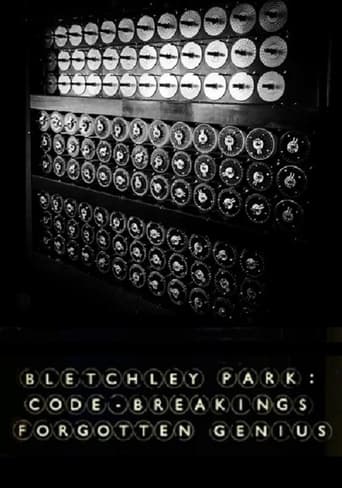

CODE-BREAKING'S FORGOTTEN GENIUS reworks three themes beloved of the contemporary television documentary filmmaker - World War Two, the Cold War and spying. The material remains endlessly attractive to weave tales of good vs. bad, the need to find out what "the opposition" are doing in their battle-plans, and the all-pervasive atmosphere of secrecy wherein no one knows who their true friends are.Such was the environment in which W. Gordon Welchman worked, first at Bletchley Park and then in America's NSA. Formerly an academic at Cambridge University's Sidney Sussex College, he went to Bletchley Park as part of the project to decode Enigma as a colleague of the far better-known Alan Turing. Through a combination of brilliance, native cunning and sheer chutzpah (especially in the way he wrote to Prime Minister Winston Churchill requesting further resources), Welchman made a name for himself as someone creating the forerunner of The Cloud, in which information could become accessible to different groups simultaneously in various parts of the globe. Recruited by the NSA to perform similar tasks during the Cold War, Welchman established a reputation for himself as an outstanding scientist and tactician.Then suddenly things went horribly wrong when he decided to publish a book in 1975, outlining his activities in Britain and the United States. His reputation plummeted, and he was ostracized, proving once and for all how the security services really fear the presence of someone who dares to countermand the dominant ideology.Tonally speaking, Russell England and John Smithson's documentary seemed rather confused. On the one hand we were clearly asked to sympathize with what happened to Welchman both before and after his death in 1985. Whereas Turing has been largely forgiven for his indiscretions, and his activities celebrated in films like THE IMITATION GAME, Welchman remains a forgotten figure. On the other hand, we couldn't help but think that Welchman knew perfectly well what would happen if he made his activities public, especially among the Secret Services of both Britain and the United States. No one, it seems, is willing to let military cats out of the bag.In the end we were left with the impression that, in spite of his native brilliance, Welchman was someone who had an over-inflated opinion of himself. It's all very well trying to broaden public awareness of the secret world of espionage, as Edward Snowden has recently done, but those who do so should be well aware of the consequences.
... View More